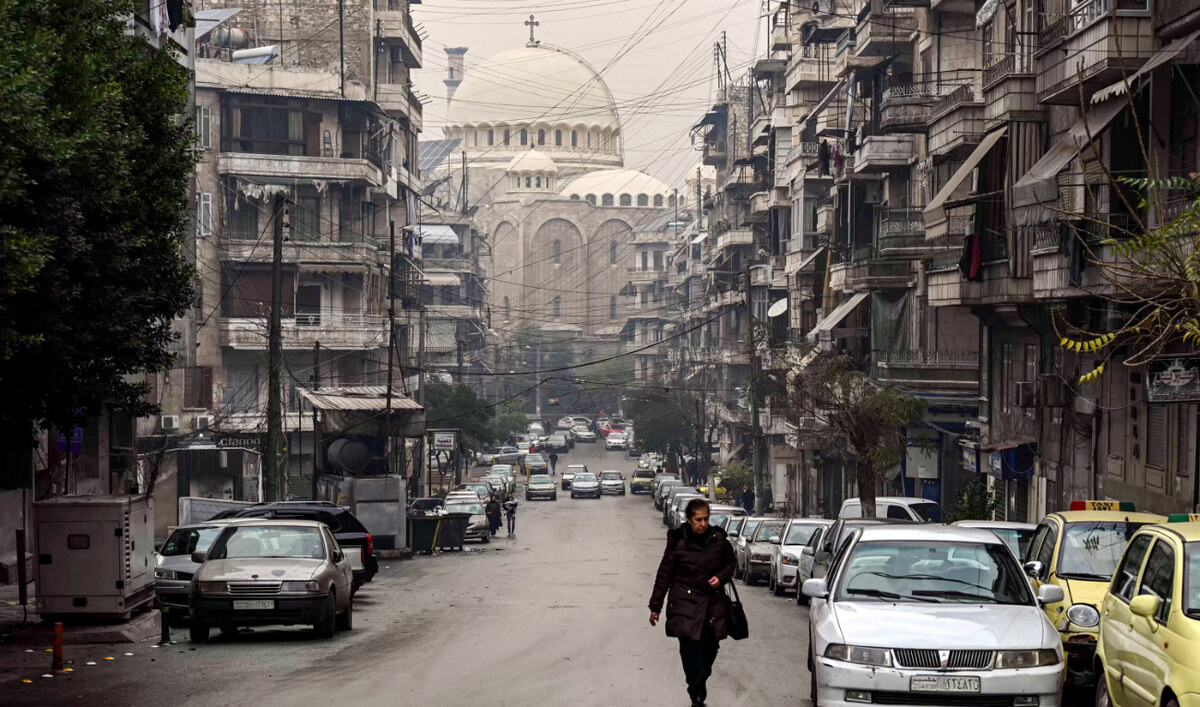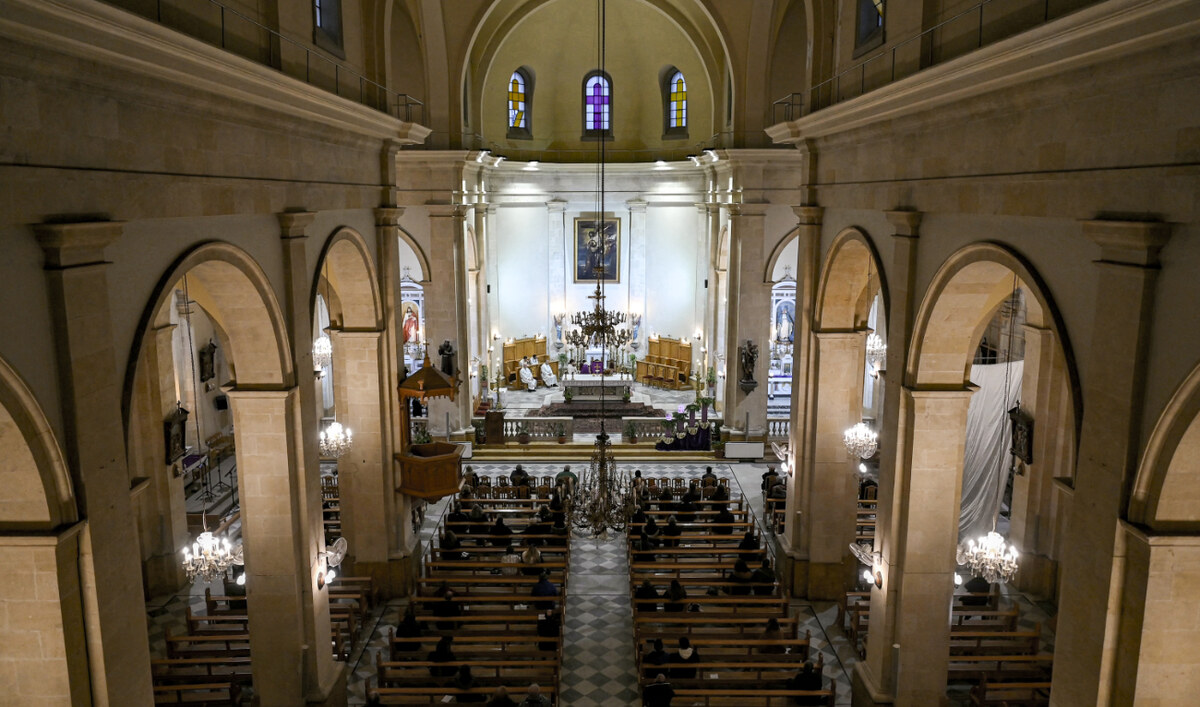BEIRUT: Inside what was once one of Beirut’s oldest and best-known cinemas, dozens of Lebanese, Palestinians and Syrians displaced by the Israel-Hezbollah war spend their time following the news on their phones, cooking, chatting and walking around to pass the time.
Outside on Hamra Street, once a thriving economic hub, sidewalks are filled with displaced people, and hotels and apartments are crammed with those seeking shelter. Cafes and restaurants are overflowing.
In some ways, the massive displacement of hundreds of thousands of people from south Lebanon, the eastern Bekaa Valley and Beirut’s southern suburbs has provided a boost for this commercial district after years of decline as a result of Lebanon’s economic crisis.
But it is not the revival many had hoped for.
“The displacement revived Hamra Street in a wrong way,” said the manager of a four-star hotel on the boulevard, who requested anonymity to speak candidly about the problems the influx has caused for the neighborhood.
For three weeks after the war intensified in mid-September, his hotel enjoyed full occupancy. Today, it stands at about 65 percent capacity — still good for this time of year — after some left for cheaper rented apartments.
But, he said, the flow of displaced people has also brought chaos. Traffic congestion, double parking and motorcycles and scooters scattered on sidewalks has become the norm, making it difficult for pedestrians to walk. Tensions regularly erupt between displaced people and the district’s residents, he said.
Hamra Street has long been a bellwether for Lebanon’s turbulent politics. During the country’s heyday in the 1960s and early 1970s, it represented everything that was glamorous, filled with Lebanon’s top movie houses and theaters, cafes frequented by intellectuals and artists, and ritzy shops.
Over the past decades, the street has witnessed rises and falls depending on the situation in the small Mediterranean nation that has been marred by repeated bouts of instability, including a 15-year civil war that ended in 1990. In 1982, Israeli tanks rolled down Hamra Street after Israel invaded the country, reaching all the way to west Beirut.
In recent years, the district was transformed by an influx of Syrian refugees fleeing the war in the neighboring nation, and businesses were hammered by the country’s financial collapse, which began in 2019.
Israel dramatically escalated its attacks on parts of Lebanon on Sept. 23, killing nearly 500 people and wounding 1,600 in one day after nearly a year of skirmishes along the Lebanon-Israel border between Israeli troops and the militant Hezbollah group. The intensified attacks sparked an exodus of people fleeing the bombardment, including many who slept in public squares, on beaches or pavements around Beirut.
More than 2,574 people have been killed in Lebanon and over 12,000 wounded in the past year of war, according to the country’s Health Ministry, and around 1.2 million people are displaced.
Many have flooded Hamra, a cosmopolitan and diverse area, with some moving in with relatives or friends and others headed to hotels and schools turned into shelters. In recent days several empty buildings were stormed by displaced people, who were forced to leave by security forces after confrontations that sometimes turned violent.
Mohamad Rayes, a member of the Hamra Traders Association, said before the influx of displaced people, some businesses were planning to close because of financial difficulties.
“It is something that cannot be imagined,” Rayes said about the flow of displaced people boosting commerce in Hamra in ways unseen in years. He said some traders even doubled prices because of high demand.
At a cellular shop, Farouk Fahmy said during the first two weeks his sales increased 70 percent, with people who fled their homes mostly buying chargers and Internet data to follow the news.
“The market is stagnant again now,” Fahmy said.
Since many fled their homes with few belongings, men’s and women’s underwear and pajama sales grew by 300 percent at the small boutique business owned by Hani, who declined to give his full name for safety reasons.
The 60-year-old movie theater, Le Colizee, a landmark on Hamra Street, had been closed for more than two decades until earlier this year when Lebanese actor Kassem Istanbouli, founder of the Lebanese National Theater, took over and began renovating it. With the massive tide of displacement, he transformed it into a shelter for families who fled their homes in south Lebanon.
Istanbouli, who has theaters in the southern port city of Tyre and the northern city of Tripoli, Lebanon’s second-largest, has turned all three into shelters where people, no matter their nationality, can take refuge.
This week, displaced people in the Beirut movie theater sat on thin mattresses on its red carpeting, checking their phones and reading. Some were helping with the theater’s renovation work.
Among them was Abdul-Rahman Mansour, a Syrian citizen, along with his three brothers and their Palestinian-Lebanese mother, Joumana Hanafi. Mansour said they fled Tyre after a rocket attack near their home, taking shelter at a school in the coastal city of Sidon, where they were allowed to stay since their mother is a Lebanese citizen.
When the shelter’s management found out that Mansour and his brothers were Syrian they had to leave because only Lebanese citizens were allowed. With no place to stay, they returned to Tyre.
“We slept for a night in Tyre, but I hope you never witness such a night,” Hanafi said of the intensity of the bombardment.
She said one of her sons knew Istanbouli and contacted him. “We told him, ‘Before anything, we are Syrians.’ He said, ‘It is a shame that you have to say that.’”
Istanbouli spends hours a day at his theaters in Beirut and Tripoli to be close to the displaced people sheltering there.
“Normally people used to come here to watch a movie. Today we are all at the theater and the movie is being played outside,” Istanbouli said of the ongoing war.
Massive displacement from Israel-Hezbollah war transforms Beirut’s famed commercial street
https://arab.news/p5w5e
Massive displacement from Israel-Hezbollah war transforms Beirut’s famed commercial street

- Sidewalks at the once a thriving economic hub are filled with displaced people
- Hotels and apartments at Hamra Street are crammed with those seeking shelter






























